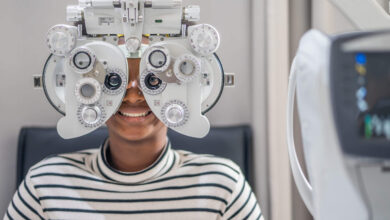How is AI Improving Outpatient Mental Health Therapies

In America’s ongoing mental health crisis, nearly 50 million adults experience mental illness annually, yet nearly half don’t receive treatment due to accessibility barriers and provider shortages. This alarming treatment gap is prompting innovative solutions in healthcare delivery. Artificial intelligence technologies are emerging as powerful tools to enhance therapeutic approaches, expand access to care, and personalize treatment.
From advanced diagnostic algorithms to virtual therapeutic assistants, AI is transforming how mental health professionals deliver outpatient services. The integration of technology into mental health treatment offers promising opportunities to reach more patients while maintaining quality care.
The Evolution of AI in Mental Health Care
The journey of artificial intelligence in psychology has evolved dramatically over the past decades. What began as simple computerized assessments has transformed into sophisticated tools that are reshaping the therapeutic landscape.
From Simple Algorithms to Complex Learning Systems
In cities known for innovation and tech leadership, such as Seattle, the integration of AI into mental health care has gained considerable momentum. The region’s strong tech ecosystem has enabled mental health providers to explore AI-driven tools for diagnostics, therapy support, and personalized treatment planning—bringing new hope to individuals seeking accessible, responsive care.
Current Implementation in Clinical Settings
Outpatient Mental Health Services In Seattle, WA exemplifies how modern facilities are integrating AI tools into their treatment protocols. These clinics demonstrate how cutting-edge technology can complement traditional therapeutic approaches while maintaining the human connection essential to mental health care.
Adoption Trends Among Practitioners
Research indicates that AI adoption among mental health professionals has increased by 65% since 2020. This surge reflects growing confidence in technology’s ability to enhance rather than replace human expertise. Practitioners increasingly view AI as a valuable partner in delivering more effective and accessible care.
As these sophisticated tools become more commonplace in clinical environments, they’re revolutionizing assessment procedures with unprecedented efficiency and accuracy.
AI-Powered Diagnostic Tools Transforming Assessment
Advanced diagnostic technologies are fundamentally changing how mental health conditions are identified and evaluated. These tools offer new possibilities for early intervention and treatment planning.
Natural Language Processing for Screening
AI systems now analyze written and verbal communication to detect linguistic patterns associated with various mental health conditions. These natural language processing tools can identify subtle signs of depression, anxiety, or suicidal ideation that might be missed in traditional assessments.
Voice Pattern Analysis for Early Detection
Voice analysis technology examines acoustic features like pitch, rhythm, and tone to identify markers of psychological distress. Research shows these systems can detect signs of depression with up to 80% accuracy by analyzing changes in vocal patterns that human ears might not perceive.
Facial Expression Recognition Systems
Algorithms that interpret micro-expressions and facial movements provide additional data points for comprehensive assessment. These tools can detect emotional states that patients might not verbally express during sessions, adding another dimension to the diagnostic process.
The impressive accuracy rates achieved by these diagnostic technologies are transforming how clinicians approach assessment, allowing for more precise and objective evaluation of complex conditions.
Real-Time Monitoring and Intervention Systems
Continuous monitoring tools are bridging the gap between therapy sessions, providing valuable insights into patients’ daily experiences and emotional states.
Wearable Technology Integration
Smart devices track physiological indicators like heart rate variability, sleep patterns, and activity levels that correlate with mental health status. These wearables provide objective data that helps clinicians understand how symptoms manifest outside the therapy room.
AI-Driven Mood Tracking Applications
Mobile apps equipped with AI analyze user inputs, behavioral patterns, and even typing speed to track emotional states. These applications can detect shifts in mood that might signal worsening symptoms, allowing for timely interventions.
Predictive Analytics for Crisis Prevention
By analyzing patterns in collected data, AI systems can identify warning signs of potential mental health crises. Studies show these predictive models have reduced emergency interventions by 35% through early identification of deteriorating conditions.
The continuous nature of this monitoring provides unprecedented insights into patients’ lived experiences, transforming how clinicians understand and respond to their needs between formal sessions.
Personalized Treatment Plans Through Machine Learning
AI is revolutionizing how treatment plans are developed and adjusted, creating truly personalized approaches to mental health care.
Tailoring Therapies to Individual Needs
Machine learning algorithms analyze vast amounts of patient data to identify which therapeutic approaches are most likely to benefit specific individuals. This matching process improves treatment efficacy by considering factors like diagnosis, personality traits, and previous treatment history.
CBT Optimization Algorithms
AI enhances cognitive behavioral therapy by customizing exercises and interventions based on individual patient responses. These systems adapt in real-time, reinforcing successful strategies and modifying less effective ones.
Medication Management Prediction
Predictive models help clinicians select appropriate medications by analyzing how similar patients have responded to various treatments. This approach reduces the trial-and-error process often associated with psychiatric medication, improving benefits of AI in therapy.
The ability to continually refine treatment based on real-time feedback and outcomes data represents a significant advancement in improving mental health with AI.
Virtual Therapeutic Assistants Expanding Access
AI-powered virtual assistants are extending the reach of mental health services, providing support between sessions and reaching underserved populations.
Beyond Basic Chatbots
Today’s virtual assistants employ sophisticated conversational AI that can respond with empathy and nuance. These systems understand context, remember previous interactions, and adapt their communication style to individual users.
Continuous Support Systems
Virtual assistants provide 24/7 access to mental health support, offering guidance during critical moments when human therapists may not be available. This continuous presence helps reinforce coping skills and prevents escalation of symptoms.
Integration with Human Therapists
Rather than replacing human providers, these AI systems work collaboratively with clinicians. They collect valuable information that informs in-person sessions and reinforce therapeutic concepts between appointments.
These virtual assistants represent a powerful tool in improving mental health with AI, particularly for patients who face barriers to traditional care.
Breaking Down Treatment Barriers with Technology
Technology and AI in mental health treatment are dismantling traditional obstacles that have prevented many from accessing needed care.
Cultural and Linguistic Adaptations
AI systems can deliver culturally sensitive care in multiple languages, reaching populations that may have limited access to native-speaking therapists. This adaptability helps address disparities in mental health treatment.
Cost Reduction Strategies
Automated systems reduce administrative burdens and increase efficiency, helping to lower the cost of mental health services. This makes quality care more affordable for patients and sustainable for providers.
Solutions for Underserved Areas
Telehealth platforms enhanced with AI capabilities extend specialized mental health services to rural and remote areas facing provider shortages. These technologies help bridge geographic gaps in care availability.
AI’s ability to transcend traditional barriers represents one of its most promising contributions to outpatient mental health therapies, creating more equitable access to quality care.
Final Thoughts: The Human-AI Partnership in Mental Health
The integration of AI in mental health therapies represents a powerful evolution rather than a replacement of human care. The most effective approaches combine technology’s analytical capabilities with the irreplaceable human elements of empathy and connection.
As these tools continue to develop, they offer hope for a future where quality mental health care is accessible to all who need it. The key lies not in choosing between technology and human touch, but in thoughtfully combining them to create more effective and accessible mental health services.
Common Questions About AI in Mental Health
1. Does AI actually improve therapy outcomes?
Two new studies from Cedars-Sinai investigators show that artificial intelligence can be an effective tool for mental health therapy. One study found that therapy sessions with avatars programmed to simulate human therapists earned positive feedback from patients struggling with alcohol addiction.
2. How does AI enhance patient care in mental health settings?
AI’s strength is in its ability to learn and recognize patterns from large multidimensional datasets. For example, AI systems translate a patient’s medical record into meaningful insights that represent likely diagnoses and treatment paths while monitoring progress continuously.
3. What does the future hold for AI in outpatient mental health therapies?
AI presents solutions for improving mental health through personalized interventions, early detection of symptoms, and virtual therapy platforms. Its capacity to analyze extensive data provides valuable insights and forecasts potential concerns while making quality care more accessible and affordable.




